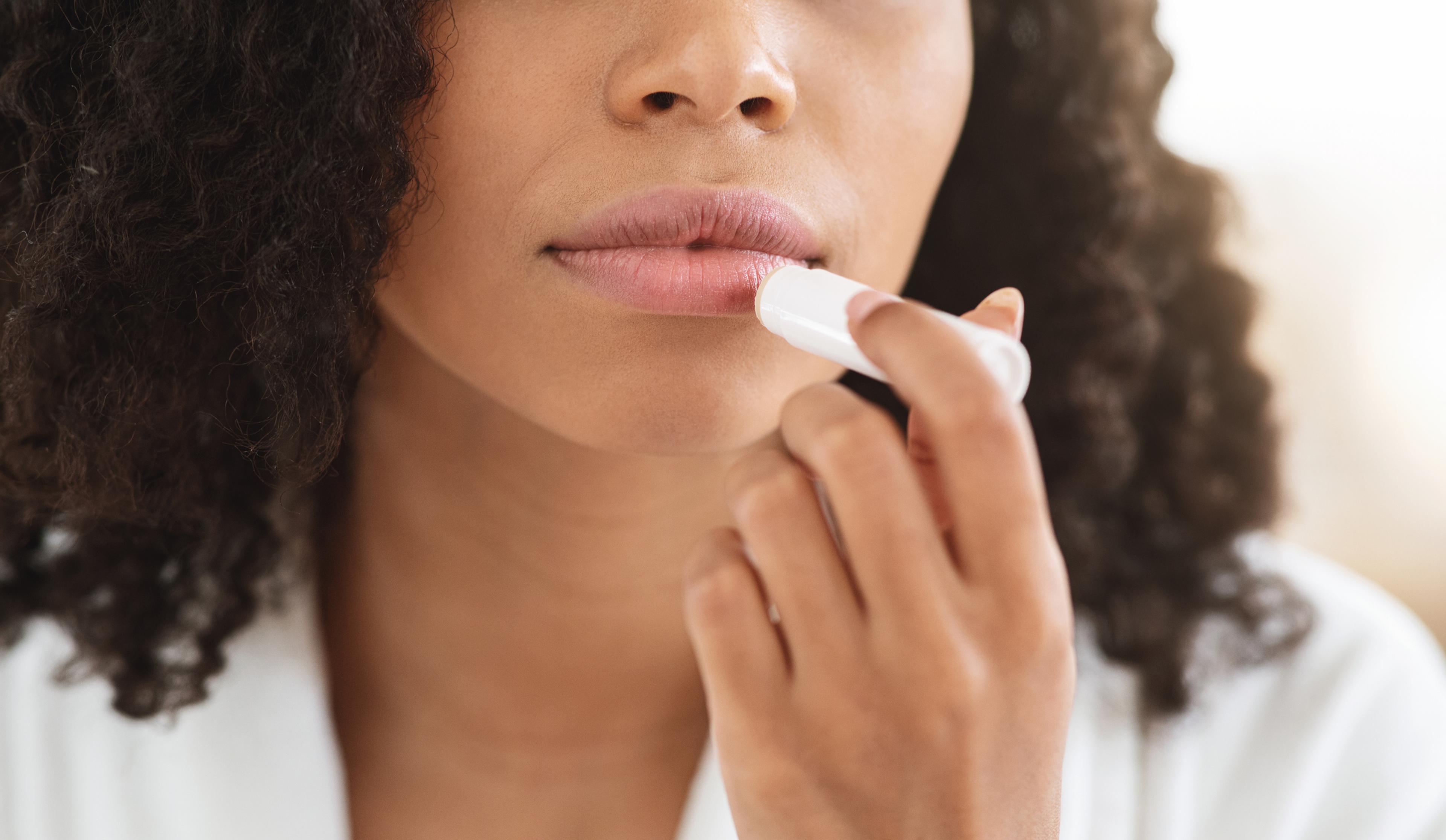How to Prevent Chapped Lips in the Winter

Blue Daily
| 3 min read

Every winter, most Americans report dealing with dry skin. One of the most common examples of dry skin in the winter is chapped lips. Chapped lips can be annoying, uncomfortable and even painful. Chapped lips can happen anytime, but the cold weather and dry air in winter make them more common.
What causes chapped lips?
Chapped lips can be caused by several factors, but in winter the most common is cold weather or dry air. These can cause the skin to dry out, causing it to feel tighter or thinner, and crack, peel and itch. Chapped lips can also be caused by:
- Sunburn or sun exposure
- Fungal infections
- Allergic reactions
- Side effects of some medications
- Viral or bacterial infections
- Chronic conditions
If you are regularly experiencing chapped lips not tied to weather or air moisture, you may want to talk to your doctor.
Ways to prevent chapped lips
To prevent chapped lips, focus on hydration and moisture, as well as protecting the skin of the lips from heat, cold, sunlight and dry air. Here are some tips for preventing chapped lips in the winter:
Use good lip balm
Some lip balms and chap sticks contain ingredients that dry skin out and can leave them more prone to chapping over time. Usually, these ingredients are added to add a flavor, scent or tingling effect. Avoid ingredients like:
- scents and flavors
- phenol
- menthol
- salicylic acid
Instead, look for lip balms and chap sticks that include sun protection of at least SPF 30. This protects your lips from sun damage while also protecting them from chapping. Petroleum-based balms coat the skin instead of being absorbed and will protect your lips longer.
Drink enough water
Being dehydrated will leave your skin more susceptible to drying out, sun or wind damage and make your lips more likely to become chapped. Drinking enough water won’t solve chapped lips on its own, but it’s an important preventive step to protect your skin and lips.
Wear scarves or face coverings for protection
Especially if you are out in the cold wintry weather, adding a layer of protection in the form of clothing can help to protect your lips from chapping. Use a scarf, ski mask, face mask or balaclava to protect your lips from the weather.
Try exfoliating the skin
If you’re looking for restoring or preventive treatments for chapped lips, try exfoliating. You can use an exfoliating scrub or make your own at home using one part honey to two parts sugar. Massage your lips with the rub for a few minutes and leave the rub on for 10 to 15 minutes before washing your face. Exfoliating skin removes dead skin, smooths skin tone and can help relieve discomfort or dryness from chapped lips.
Use a humidifier
Dry air in your home may dry out your skin and contribute to chapped lips. Humidifiers introduce more moisture into the air in your home and can help to keep your skin and lips from drying out. If you notice other symptoms of dry air such as dry eyes or waking up with a sore throat, or if your lips are chapping even with other protective measures, you may want to try a humidifier.
Avoid drinking alcohol and smoking
Alcohol dehydrates skin and smoking dehydrates the skin, but especially the hands and mouth. These contribute to chapped lips and make preventive measures against chapped lips less effective.
Photo credit: Getty Images
Related:





